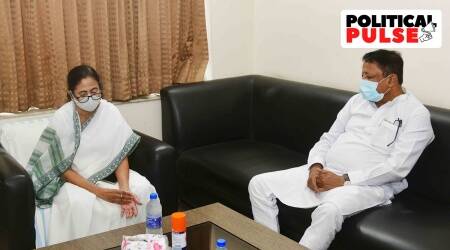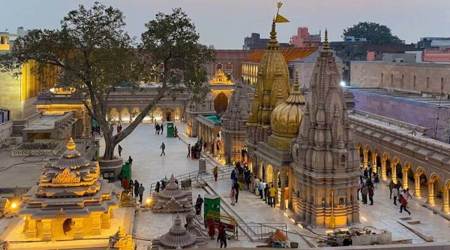The Class 10 examination results have triggered a war of words in Andhra Pradesh (AP) with the Opposition blaming the government for over two lakh students failing in the boards: The pass percentage of 67.26, coming in the wake of the pandemic, is the lowest in the last 20 years. On Thursday, TDP general secretary and son of former chief minister Chandrababu Naidu, Nara Lokesh Naidu, upped the ante and reached out to students and parents over Zoom, but was interrupted by ruling party (YSRCP) leaders, who accused the TDP of politicising school examinations and students. The TDP shut out the YSRCP voices and continued with the video conference. But the TDP initiative as well as the YSRCP challenge mark a good moment in public political discussion, in which issues such as school education usually take a backseat, if they figure at all. School education is far too serious a matter to be left to the bureaucracy; it ought to feature more in the agenda of political parties.
That the YSRCP, which has been sweeping elections at all levels in AP since the state was bifurcated in 2014, felt it necessary to intervene in the discussion over exam results, however, could also point to the traction the issue of education has traditionally had in Andhra society. In fact, education has been something of a possible gamechanger in elections in some of the southern states for some years now. If the socialisation of educational institutions polarised Kerala in the late 1950s, leading to a mass movement and the undemocratic dismissal of the CPI government in 1959, the AIADMK under MGR enhanced its pro-poor image and cemented its electoral appeal by introducing a mid-day meal scheme in Tamil Nadu in the early 1980s. In recent months, the DMK in Tamil Nadu has found in NEET, the entrance exam for medical and pre-medical courses, an issue to corner both the BJP and AIADMK. Elsewhere, Nitish Kumar in Bihar and Arvind Kejriwal in Delhi have cultivated constituencies by focusing on school students and their parents. Free schooling and bicycles for girl students have allowed Nitish Kumar to carve a niche in a polity defined primarily by caste whereas Kejriwal has made the work done by his government in schools a calling card as AAP seeks to expand beyond Delhi.
Hopefully, other political parties will take a cue from TDP, YSRCP, DMK, JD(U), AAP, and bring education to the forefront of political debate. It would be a necessary departure from the polarising talk on identity and religion that mostly dominates it.
Best of Express Premium Premium
Premium Premium
Premium Premium
Premium Premium
Premium
!function(f,b,e,v,n,t,s)
{if(f.fbq)return;n=f.fbq=function(){n.callMethod?
n.callMethod.apply(n,arguments):n.queue.push(arguments)};
if(!f._fbq)f._fbq=n;n.push=n;n.loaded=!0;n.version=’2.0′;
n.queue=[];t=b.createElement(e);t.async=!0;
t.src=v;s=b.getElementsByTagName(e)[0];
s.parentNode.insertBefore(t,s)}(window, document,’script’,
‘https://connect.facebook.net/en_US/fbevents.js’);
fbq(‘init’, ‘444470064056909’);
fbq(‘track’, ‘PageView’);
.

✅ خرید وی پی ان ❇ ip ثایت vPn آی پی اختصاصی ◐
✅ خرید VPN آی پی ثابت ترید بایننس وی پی ان ◐ ip اختصاصی اکانت آی پی ثابت

